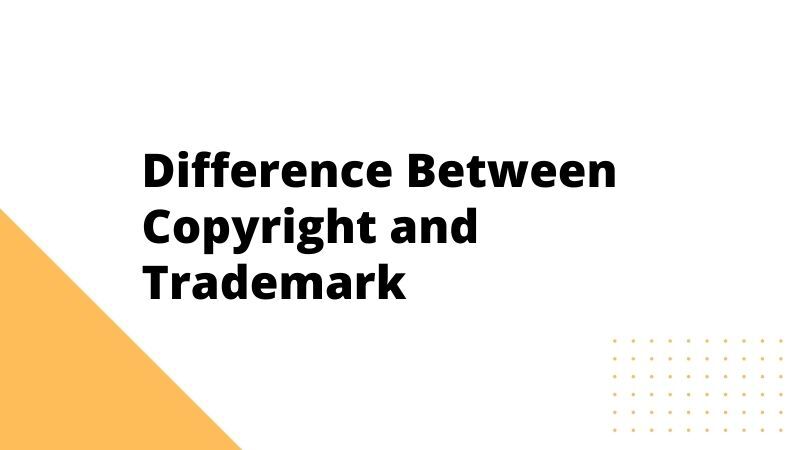

If you are a brand that develops and designs its original goods and services, you may wonder how to protect your intellectual property. This may have brought up the question–what is the difference between a trademark and a copyright?
Copyrights and trademarks allow you to safeguard your company and launch a lawsuit against anyone who violates your intellectual property rights by using your intellectual property without your permission. When it comes to your business, intellectual property and brand identity might be just as crucial as increasing profitability and boosting sales.
In this article, we will be discussing the core differences between a copyright and a trademark. It will help you determine the more appropriate option for your business.
A copyright is a legal privilege granted to authors of artistic works and producers of motion pictures and sound recordings. Names and brands, slogans, brief word combinations, ideas and concepts, short phrases, stories, procedures, and factual information are not protected by copyright. As a result, copyright is usually used to preserve the originality of artists, writers, architects, musicians, cinematographers, and computer software developers.
A trademark is a phrase or a sign used by a company to set its goods and services apart from those that offer similar products and services. A trademark application must be filled in the approved format with the Trademark Registrar to register a trademark. Trademarks are used to protect brand and business names, slogans, and many other things.
Copyright and Trademark are ways of protecting intellectual property. Intellectual property refers to the abstract creations of humans, such as artistic and literary creations, designs, innovations, and others. Both Copyright and Trademark are used in different ways.
The Copyright Act allows the registration of software, programs, and databases as "literary works." In the eyes of the law, a copyright is a legal document that grants an exclusive right to the person who created the work. Therefore, any person with copyright should exercise it responsibly and per the copyright laws.
Copyright is given to creative persons who write original works. Copyright is primarily used by writers, artists, and poets to protect their original work. The Copyright Office, Department of Higher Education, and Ministry of Human Resource Development review and accept Copyright applications. As per the general rule, a copyright registration in India is valid for 60 years.
Alternatively, individuals, companies, and NGOs all utilise trademarks to protect their brand names, business names, slogans, and other items. A trademark cannot be used on a concept, an idea, or software. However, a trademark applies to a particular name given to an idea or software.
Most companies tend to trademark their product packaging or the products themselves. By doing so, they are ensuring that their products are safeguarded from other companies unethically utilising their brand's logo or packaging. As per the law, a trademark owner is well within their rights to sue anybody that uses their trademarked property without permission. The Controller General of Patents, Designs and Trademarks, Ministry of Commerce and Industry, reviews and accepts trademark applications.
Trademark registration in India, on the other hand, is valid only for ten years. Therefore, by filing a trademark renewal application at the end of the ten years, the validity of the trademark can be extended.
Therefore, we may conclude that the primary difference between the two is that while they each protect intellectual property, they come with different registration requirements and safeguard different assets.
The intellectual property associated with your brand is protected by copyright and trademark registration. They are vital legal documents that will ensure that no other firm or brand exploits your intellectual property for their financial gain in the future. Whether you are looking to trademark or copyright your intellectual property, experts at My Legal Clinic can provide you with the best service possible and assist you with a variety of different types of legal services.